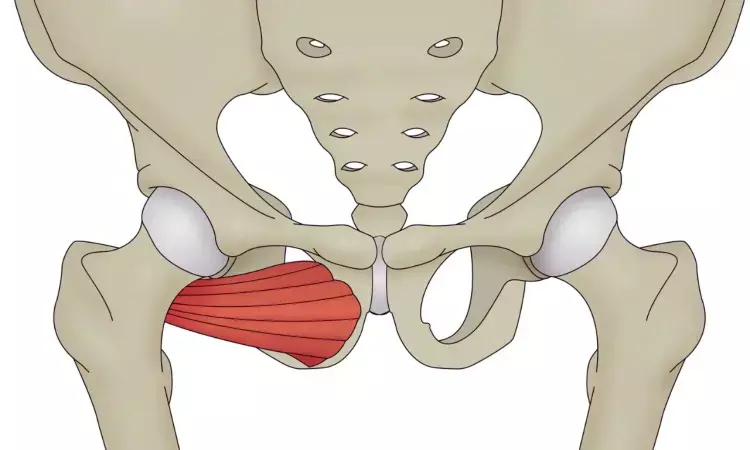- Home
- Medical news & Guidelines
- Anesthesiology
- Cardiology and CTVS
- Critical Care
- Dentistry
- Dermatology
- Diabetes and Endocrinology
- ENT
- Gastroenterology
- Medicine
- Nephrology
- Neurology
- Obstretics-Gynaecology
- Oncology
- Ophthalmology
- Orthopaedics
- Pediatrics-Neonatology
- Psychiatry
- Pulmonology
- Radiology
- Surgery
- Urology
- Laboratory Medicine
- Diet
- Nursing
- Paramedical
- Physiotherapy
- Health news
- Fact Check
- Bone Health Fact Check
- Brain Health Fact Check
- Cancer Related Fact Check
- Child Care Fact Check
- Dental and oral health fact check
- Diabetes and metabolic health fact check
- Diet and Nutrition Fact Check
- Eye and ENT Care Fact Check
- Fitness fact check
- Gut health fact check
- Heart health fact check
- Kidney health fact check
- Medical education fact check
- Men's health fact check
- Respiratory fact check
- Skin and hair care fact check
- Vaccine and Immunization fact check
- Women's health fact check
- AYUSH
- State News
- Andaman and Nicobar Islands
- Andhra Pradesh
- Arunachal Pradesh
- Assam
- Bihar
- Chandigarh
- Chattisgarh
- Dadra and Nagar Haveli
- Daman and Diu
- Delhi
- Goa
- Gujarat
- Haryana
- Himachal Pradesh
- Jammu & Kashmir
- Jharkhand
- Karnataka
- Kerala
- Ladakh
- Lakshadweep
- Madhya Pradesh
- Maharashtra
- Manipur
- Meghalaya
- Mizoram
- Nagaland
- Odisha
- Puducherry
- Punjab
- Rajasthan
- Sikkim
- Tamil Nadu
- Telangana
- Tripura
- Uttar Pradesh
- Uttrakhand
- West Bengal
- Medical Education
- Industry
Study Unveils Pelvic Stress Fractures: Rare Complication in Tumour Reconstruction

UK: Pelvic stress fractures (PSFs) following pelvic tumor resection and reconstruction are rare but significant complications that can have a profound impact on patient recovery and quality of life. A recent study, published online in Apollo Medicine, highlights the importance of early diagnosis and timely management of this complication. Researchers suggest that radiologists and orthopedic oncology surgeons must be aware of pelvic stress fractures to ensure optimal patient care.
Dr. Rajesh Botchu, the study's lead author from the Royal Orthopedic Hospital in Birmingham, UK, shared valuable insights with Medical Dialogues. He emphasized that pain following pelvic tumor surgery can stem from several causes, including recurrence of the tumor and implant failures. He added, "Stress response and stress fractures can occur due to altered biomechanics, which can result in pain. These conditions can mimic recurrence on MRI, and awareness of this is essential to decrease morbidity."
Dr. Botchu further highlighted the clinical implications of the study, stressing that stress fractures can be mistaken for recurrence on MRI. He emphasized that this awareness is crucial in reducing complications and improving patient outcomes.
Pelvic bone tumors are uncommon and can be associated with a poor prognosis, despite advances in radiological imaging and surgical techniques. Limb salvage surgery has become the standard treatment for patients with primary bone sarcomas. However, the rate of peri-operative complications, such as local recurrence and surgical site infections (SSI), remains high.
To explore the occurrence of pelvic stress fractures in this context, Dr. Botchu and his colleagues conducted a retrospective study at their tertiary referral oncology center. The study focused on patients who underwent internal hemipelvectomy for pelvic tumors or sarcomas between 2007 and 2019. Patient demographics, clinical features, imaging results, clinical management outcomes, and peri-operative complications were reviewed.
Out of the patients assessed, six were identified as having developed stress fractures following internal hemipelvectomy. The most commonly affected area was the sacrum, seen in three of the six cases. The ischium and femoral neck were also identified as regions affected by insufficiency stress fractures.
Dr. Botchu acknowledged the limitations of the study and discussed its future directions. "We have shown a case series of stress response and stress fracture-related changes post pelvic surgery. This could probably be replicated in other areas of the body, and further large cohort studies would be helpful to evaluate this further," he said. When asked about the unique aspects of the study, he mentioned, "This is the first study showing stress response/stress fractures post pelvic surgery."
"While stress fractures following pelvic resection and reconstruction are rare, they represent a significant complication that warrants attention. The study emphasizes the need for radiologists and orthopedic oncology surgeons to be vigilant and proactive in diagnosing and managing this condition. Early identification of stress fractures can help reduce morbidity and improve patient recovery outcomes," Dr. Botchu and colleagues concluded.
Reference:
Saad, A., Iyengar, K. P., Kurisunkal, V., Parry, M., & Botchu, R. (2024). Pelvic Stress Fractures Following Resection and Reconstruction of Pelvis Tumours—An Observational Study. Apollo Medicine. https://doi.org/10.1177/09760016241286220
Dr Kamal Kant Kohli-MBBS, DTCD- a chest specialist with more than 30 years of practice and a flair for writing clinical articles, Dr Kamal Kant Kohli joined Medical Dialogues as a Chief Editor of Medical News. Besides writing articles, as an editor, he proofreads and verifies all the medical content published on Medical Dialogues including those coming from journals, studies,medical conferences,guidelines etc. Email: drkohli@medicaldialogues.in. Contact no. 011-43720751


